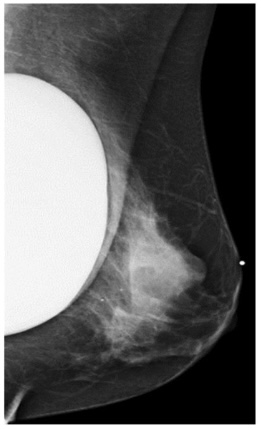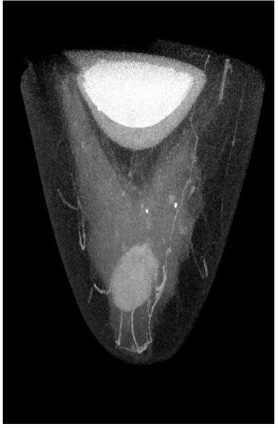CSE: IZO, OTC: IZOZF, FRA: 1R3
The journal Nature published a study entitled “International evaluation of an AI system for breast cancer screening” on January 1, 2020. This article has since been reported across all major news outlets under headlines such as “Google's AI Bested Doctors in Detecting Breast Cancer in Mammograms” and “Google AI system can surpass human experts in spotting breast cancer, study finds”.
The study aimed to determine if deep learning algorithms could identify both cancerous and non- cancerous tumors by studying historic mammography scans of patients in the US and the UK. The databases in both countries are available and accessible to any company with legitimate research purposes.
According to Googles blogpost, the AI system was able to reduce false positives readings by 5.7% and false negatives by 9.4% with the US data, and false positives readings by 1.2% and false negatives by 2.7% with the UK data.
The Verge reports “The system was not perfect. While researchers found that AI outperformed doctors in identifying breast cancer in most cases, there were also instances where doctors flagged cancer that the model originally missed. “Sometimes, all six U.S. readers caught a cancer that slipped past the AI, and vice versa,” Mozziyar Etemadi, a researcher at Northwestern University and another co-author of
the paper, tells The Wall Street Journal.”
There is much doubt that AI will replace radiologists. Carolin Rubin is Vice President for the Clinical Radiology at the UK’s Royal College of Radiologists. She was involved with the study and spoke to Wired, “AI programmes will not solve the human staffing crisis – as radiologists and imaging teams do far more than just look at scans – but they will undoubtedly help by acting as a second pair of eyes and a safety net.”
The US FDA has already approved 41 image analysis algorithms. The Google AI algorithm is not approved and is not open source. Of the 41 approved, 17 are for CT and 7 are breast imaging specific; 2 for breast MR, 2 for breast ultrasound, 2 for mammography and 1 for tomosynthesis.
It’s evident that the use of mammography has been and continues to be a very beneficial breast cancer detection modality. As the gold standard and the first line of defense however it’s limited, and a high percentage of false negative and false positive diagnoses still exist. It’s clear from the number of FDA approved breast specific algorithms, the Google study, and the media response that resulted, that any technology improvement or assistance that can improve diagnostic capability is potentially disruptive, and that breast specific imaging and its improvement is a major priority.
Izotropic Corporation has the worldwide licensing rights to a dedicated breast CT technology developed at UC Davis Medical Center in Sacramento CA. The Izotropic Breast CT Imaging System produces high resolution breast images in 3D. A single 10 second breast CT scan acquires approximately 500 images, without painful breast compression, providing radiologists with fully 3D viewing of the scanned breast. Mammography scanning requires compression of the breast between 2 imaging plates, resulting in 2D images.

2D Mammography

3D Breast CT
Dr. John Boone, Medical Physicist at UC Davis in Sacramento and principal inventor commented on the Google AI study, “Recent reports show that artificial intelligence (AI) algorithms might interpret mammograms better than radiologists, demonstrating the powerful potential of AI. Members of the UC Davis laboratory were some of the first to report on neural networks (an earlier version of AI) in the medical imaging literature 30 years ago, and current research* using modern AI techniques is ongoing in the laboratory in order to improve the quality of the breast CT images. We embrace AI technology, have already incorporated AI into our technology, and are confident that AI will ultimately lead to more accurate diagnoses for breast cancer using breast CT.”
The Company believes that dramatic and meaningful advances in breast cancer detection will only occur when cancers can be identified by radiologists at a much earlier stage. Disruptive technology advances such as breast CT are required to accomplish this objective and AI is expected to assist.
The Izotropic Breast Imaging System is currently in clinical trials at UC Davis Medical Center through a U.S. $2.9M grant provided by the National Institutes of Health. The trials are ongoing and the Company looks forward to begin sharing trial data by the end of Q1, 2020.
It’s encouraging to see AI developments focusing on breast cancer and the Company agrees that AI will play a role in assisting radiologists. Given the positive results of the Google study with 2D mammography technology, we can only imagine what AI will add to true, high resolution 3D breast CT imaging.
Bulletin Citations and Links
Data Science Institute, American College of Radiology
*American Association of Physicists in Medicine
About Izotropic Corp.
The company is engaged in the development and commercialization of 3-D breast CT imaging technology for early diagnosis of breast cancer, that improves patient comfort, provides true high-resolution images and delivers high diagnostic accuracy. The company has also established Izotropic Imaging Corp, a wholly owned Nevada based subsidiary that will manage operations in the U.S.A.
Phone: 1-833-IZOCORP
Email: info@izocorp.com
Website: izocorp.com
This document may contain forward-looking statements that are based on the Company’s expectations, estimates and projections regarding its business and the economic environment in which it operates. These statements are not guarantees of future performance and involve risks and uncertainties that are difficult to control or predict. Therefore, actual outcomes and results may differ materially from those expressed in these forward-looking statements and readers should not place undue reliance on such statements. Statements speak only as of the date on which they are made and the Company undertakes no obligation to update them publicly to reflect new information or the occurrence of future events or circumstances, unless otherwise required to do so by law.
